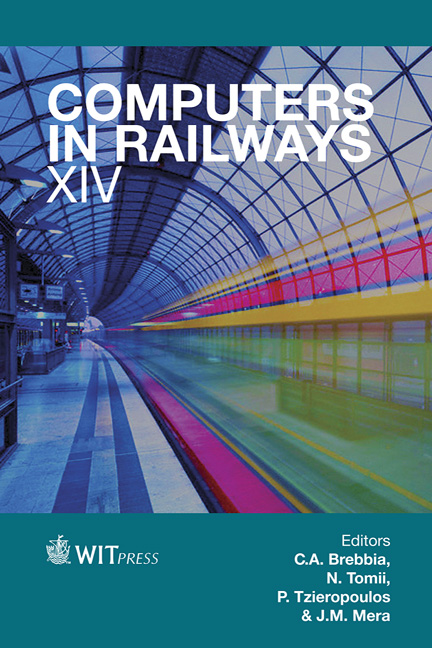Minimizing Energy Consumption In Railways By Voltage Control On Substations
Price
Free (open access)
Transaction
Volume
135
Pages
12
Page Range
697 - 708
Published
2014
Size
620 kb
Paper DOI
10.2495/CR140581
Copyright
WIT Press
Author(s)
A. U. Raghunathan, T. Wada, K. Ueda & S. Takahashi
Abstract
We propose an optimization method for minimizing energy consumption in DCelectrified railways where the trains are fitted with regenerative brakes. Reduction in energy consumption is achieved by controlling the voltage at the substations in real time. Conditional constraints are employed to model the behavior of trains and substations. This allows us to relax some of the imposed limits thereby enlarging the operating envelope of system and increasing the potential for energy savings. The conditional constraints are modeled using complementarity constraints which are smooth and differentiable. The optimization problem is an instance of a Mathematical Program with Equilibrium Constraints (MPEC). A numerical example with 42 trains and 8 substations is used to illustrate the savings from the method and the computational times. The proposed approach is shown to reduce energy consumption by about 3% over 2:5 minute of operation, recover about 97% of the regenerated energy while computing the optimal voltages in real time (< 1s). Keywords: substation voltage control, regenerative braking, conditional models, complementarity constraints, mathematical programs with equilibrium constraints, energy reduction.
Keywords
substation voltage control, regenerative braking, conditional models, complementarity constraints, mathematical programs with equilibrium constraints, energy reduction.





